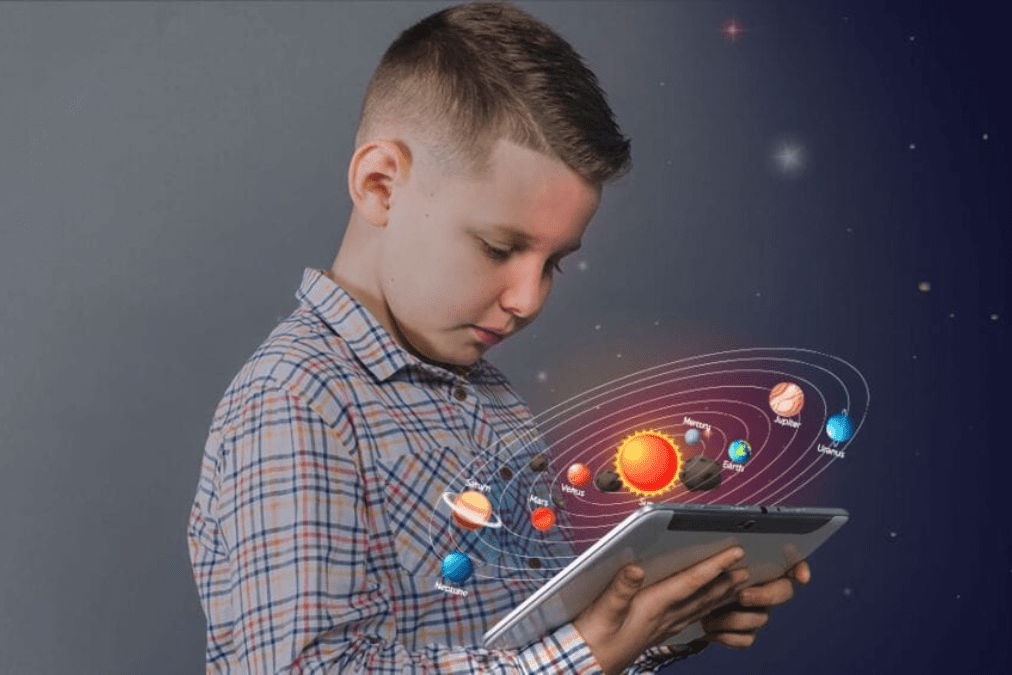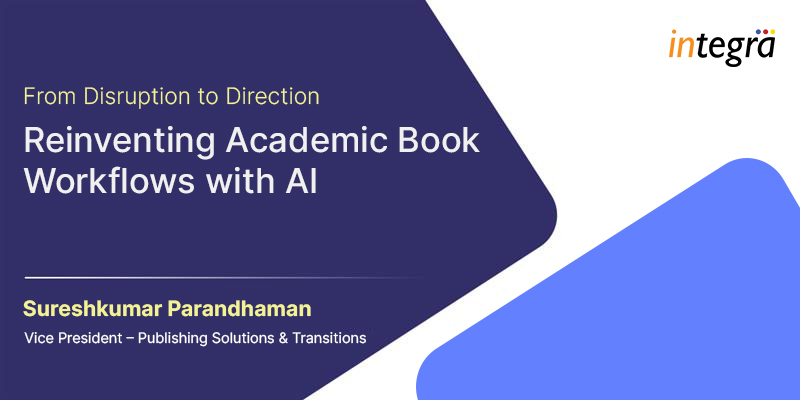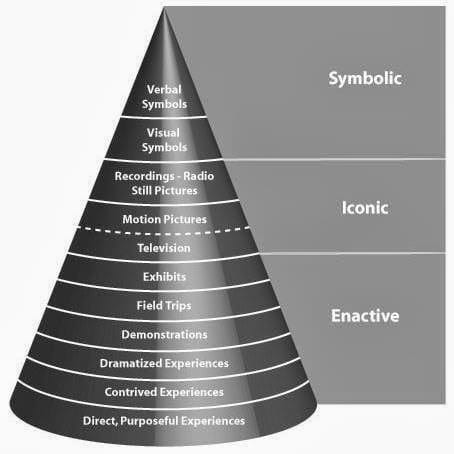Harness Attention, Revolutionize Learning and Improve Learning Gains with AR in School Education

Augmented Reality (AR), has continuously been evolving to enrich our experience in a variety of interactions including learning and entertainment. From the visualization of information from objects in Sci-Fi movies to Snapchat doodles and the game Pokémon Go, augmented reality is steadily proliferating in our daily lives, thanks also in part to the increased availability of smartphones with computing capabilities.
Virtual Instructional Strategies are Here to Stay
When the world woke up to the realities of the disruptions caused by COVID-19, educating millions of students worldwide came to a standstill. Virtual teaching and learning were adopted overnight with the creative application of every digital resource that was at reach.
Slow adoption rates to education technology from the teaching community, were once considered a critical challenge in implementing technology-assisted teaching, but the EdTech industry is now attracting billions of dollars in investments worldwide.
For almost a year now, stakeholders in the entire education value chain have experienced first-hand, the benefits of technology-assisted learning strategies. Looking forward, we can see how education technology and virtual instructional strategies will complement in-person teaching-learning experiences.
The Reality of Learning Loss
The disruption to in-person learning has brought is ‘Learning Loss,’ when students and teachers eventually return to school full-time, without any restrictions. While there are many positive transformational changes that one can count the current situation has brought to education, most educators acknowledge learning gains are significantly lower than in-person learning.
Learning loss is more pronounced in subjects like math and science, where a student will be able to move from one concept to another in a sequential manner. Students face difficulty in correlating the topic of study with its applications and visualizing concepts in real-time scenarios in these subjects. COVID-19 forced restrictions or, otherwise, widespread learning difficulties in these subjects is a fact.
A Case for Augmented Reality (AR) in School Education
Edgar Dale’s Cone of Experience (also commonly referred to as Dale’s Cone of Learning) provides a perspective to our conversation here. ‘Direct Purposeful Experiences,’ ‘Contrived Experiences’ and ‘Dramatized Experiences’ are placed at the bottom of the cone as those interactions require simultaneously engaging multiple senses during a learning event. There is consensus among educators that experiential learning strategies deliver better learning outcomes while learning complex concepts.
Edgar Dale, Audio-Visual Methods in Teaching, (1969). Source: Dale’s Cone of Experience Timeline]
‘Direct Purposeful Experiences’ are invariably not possible when learning complex concepts. Until technologies like Augmented Reality (AR), Virtual Reality (VR), and Mixed Reality (MR) became mainstream in conversations across industries including in education, facilitating ‘Contrived Experiences’ and ‘Dramatized Experiences’ as an instructional strategy fell short of what it ought to be.
“Contrived and Dramatized experiences place the learner at the center of learning, and the participatory experiences these offer fosters improved learning efficacy.” Through observation and interacting with inactive cognition, processing information is quick and easy, leading to increased knowledge retention.
Of the three extended reality technologies, AR has immense potential in the context of its application in education, at least in instructional materials for grades 3 to 8. AR is the most easily accessible and scalable immersive technology today.
Creating immersive educational content wherein the learner is rooted in reality while visualizing and experiencing educational content can exponentially increase knowledge assimilation. Here are a few simple examples:
- Visualizing the interaction between atoms, molecules, and bonds leads to numerous results and applications in our daily lives.
- Visualizing virtual growth cycles and anatomy of plants and animals and their interaction with the environment.
- Visualization of virtual 3D objects from various angles to understand spatial geometric concepts through the manipulation of variables and interaction with the objects
Augmented Reality’s ability to create an immersive and interactive experience combined with game mechanics offers an excellent platform to improve motivation.
Embracing Augmented Reality (AR) Instructional Content in School Education
The speed of moving vehicles, the functioning of the universe, the process of generating electricity, the transformation of energy, and many such complex topics of study that are most difficult to visualize can be made more straightforward today with the use of AR-based learning modules. Imagine walking alongside wild animals in your garden or visualizing the world map on the study table.
From problem-solving, collaboration, and enhancing proficiency in scientific and mathematical concepts, AR offers 2D and 3D representation in real-time, which contrasts with the traditional presentation of information in classrooms.
The human body can make sense of information in myriad ways, but we are not leveraging most of them. “If you want to teach people a new way of thinking, don’t bother trying to teach them. Instead, give them a tool, the use of which will lead to new ways of thinking”, says Richard Buckminster Fuller, the well-known futurist. AR has evolved to offer just that. AR helps embrace pragmatism and imagination with empathy.
At Integra, we help education and learning services providers experiment and innovate within their space by providing the much-needed bandwidth through our digital content development, and XR in learning solutions (AR/VR/MR/360°videos). Our team of experts can help you design innovative and impactful learning interventions for your learners. Contact us today to learn more about how we can support you with this transformation!
Recent Blogs

Research Integrity vs. Publication Integrity: Clarifying Responsibility in Scholarly Publishing

From Disruption to Direction: Reinventing Academic Book Workflows with AI



